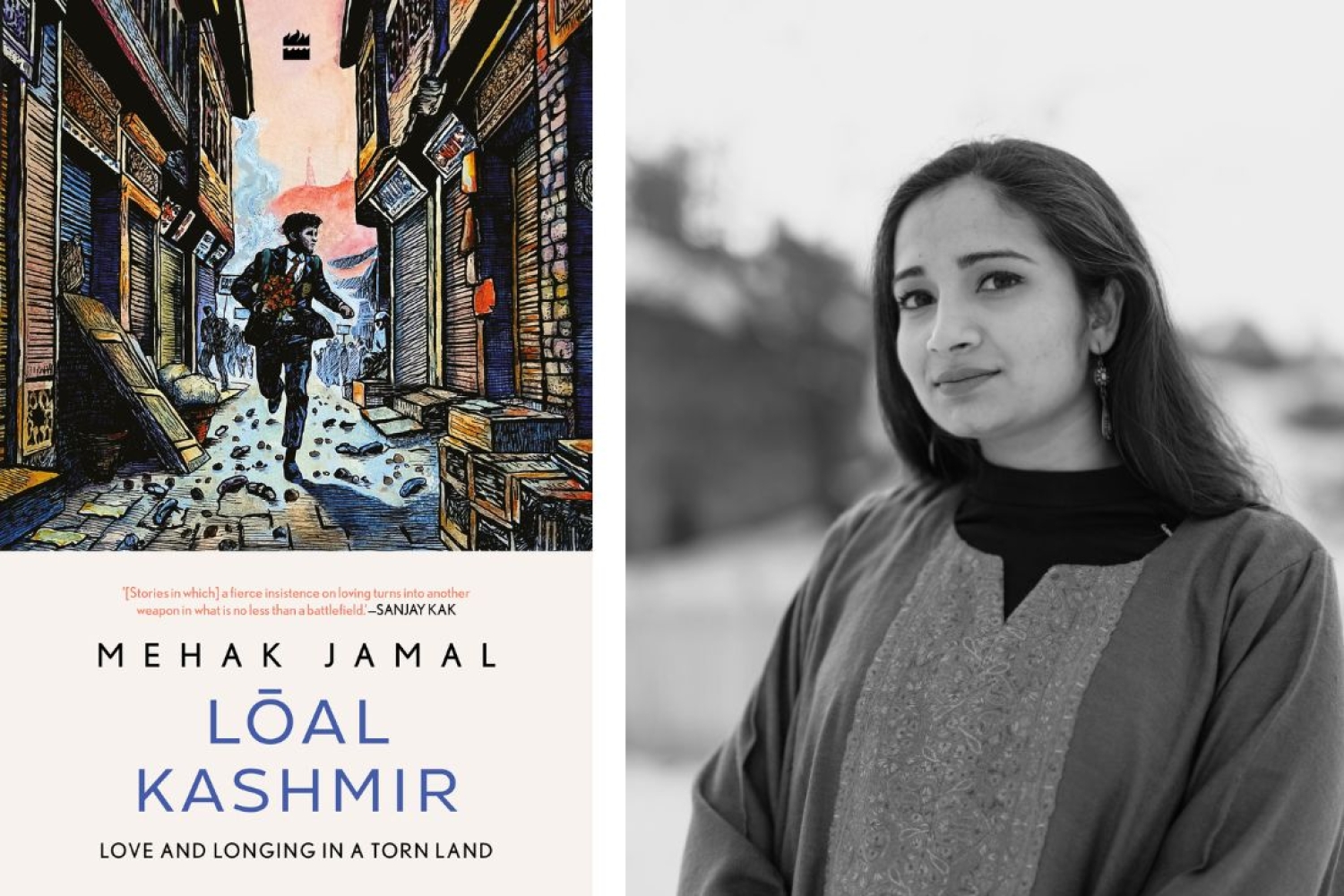

We often hear about Kashmir through news reports and the political unrest that has shaped the valley for decades. But how do you imagine their daily lives? How do they wake up, go to school, celeberate festivals, go for shopping, go out to eat or how do they love, laugh or cry in the disharmony that looms over their state? Filmmaker and writer, Mehak Jamal, collects the voices of Kashmiri lovers and their love that bloomed in the valley in her upcoming debut book. Stories of love and loss find their place in Loal Kashmir. The title, which means love and longing in Kashmiri, encapsulates the stories that have persisted through the region’s many upheavals, featuring a range of narratives from a place where love is often hidden within a conservative society as well as overshadowed by more pressing survival issues. The anthology aims to offer a nuanced understanding of life in Kashmir for anyone willing to engage with its complexities.
‘When I set out to collect these stories, I thought of it as a memory project’, says Mehak. Initially unsure of the format—be it a film anthology or a book—she found the overwhelming response from over sixty interviewees nudged her toward the latter, since ‘it is harder to pitch such stories for film and do justice to them all’.
Her filmmaking skills influenced her writing style, though not without challenges. ‘The language of my writing is very screenplay-like, but scripts are blueprints, not final outputs. I found that this hindered me more than it helped’. Nevertheless, screenwriting teaches you to visualise while writing, which enhances my prose and shapes how I conduct interviews and ask questions. I write all the stories like it’s a film because it has a beginning, middle and end.’ This perspective helped her make sense of the nonlinear way people often recount their experiences.
The selection of stories was another complex aspect of her project. ‘I received many stories from recent times, but also from the 90s and 2000s, however, stories from the older generations were harder to collect due to my project call reaching lesser people from that generation.’ In her efforts to represent the diverse experiences of Kashmiris. She felt it was crucial to include the perspectives of Kashmiri Pandits from the 90s, believing that ‘any representation of Kashmir during that time was incomplete without them’. Additionally, she explored lesser-known stories, like those of women from Pakistan-occupied Kashmir. ‘It was hard to sift through so many responses. I wanted to keep the stories diverse and also avoid repetitiveness, especially around the abrogation time.’ This careful curation resulted in a chronological anthology that captures the varied and often poignant experiences of those affected by the region’s tumultuous history.
Mehak’s decision to explore Kashmir through the lens of love emerged organically during her research. ‘I was always interested in the lived experiences of people during conflict.’ As she gathered stories, she asked herself, ‘what if I tell these stories through love?’—a universal emotion—that could serve as a powerful entry point, resonating with a wider audience but also challenging the often tragic narratives typically associated with Kashmir, recognising their identities beyond the political turmoil. ‘The normallives of people take a backseat in conflict, but these experiences are essential to understanding the region since they are so deeply informed by the conflict itself. To understand the Kashmir conflict, it is essential to take note and notice how the people there love, live and go on.’
Writing the book also led to a deeper connection with her Kashmiri roots. ‘I’ve always felt a slight niggle that I don’t belong, given my mixed heritage,’ however, her interviews revealed a surprising intimacy with her subjects. Many opened up to her in ways they might not have with others, perhaps due to the anonymity she offered. ‘I was their secretkeeper.’
When her book reaches the hands of the readers, Mehak hopes it fosters empathy and understanding. ‘For Kashmiris, I hope they find a reflection of their experiences and know that they are not alone in what they’ve felt or feel and for those outside the region, I want them to engage with the stories and learn more about Kashmir.’
Words Paridhi Badgotri
Date 11.01.2024